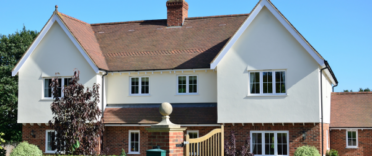 Most lenders offer mortgage loans that start from £10,000 therefore arranging a £100,000 mortgage is theoretically possible with almost all lenders. However, every mortgage application must meet the qualifying criteria set out by the lender and this will vary from one to the next. Borrowers must also understand the amount of deposit they will need based on the property purchase price and the income evidence required to meet affordability measures.
Most lenders offer mortgage loans that start from £10,000 therefore arranging a £100,000 mortgage is theoretically possible with almost all lenders. However, every mortgage application must meet the qualifying criteria set out by the lender and this will vary from one to the next. Borrowers must also understand the amount of deposit they will need based on the property purchase price and the income evidence required to meet affordability measures.
In this article, we explain how much you will need to earn, the deposit you will need and how much you can expect to pay for a £100,000 mortgage. We also share how to prepare for your mortgage application to ensure that you are accepted and get the best mortgage deal.
How much do you need to earn to get a £100k mortgage?
Lenders have different criteria for how much you need to earn in order to get a £100,000 mortgage. Most lenders will offer a single mortgage applicant around 4 to 4.5 times their income (income multiples) as a mortgage amount. The multiple will be slightly different if you apply jointly with two or more incomes supporting the mortgage loan. Often, a joint mortgage applicant can expect to borrow up to around 3 to 4 times their combined income. Some lenders will stipulate minimum income levels too.
Specialist mortgages such as a professional mortgage could offer up to 6 times your income for a mortgage loan as long as you meet other criteria set out by the lender. You can read more about this mortgage option in our Tembo mortgage review - Tembo provides specialist mortgage broking advice.
Income multiple criteria can also vary depending on the deposit amount you will pay towards the purchase of a property, compared with the amount you are looking to borrow as a mortgage. This is referred to as the loan-to-value (LTV). A lower LTV could mean that you qualify for a higher income multiple. This is because the lender is taking less risk as it lending a smaller proportion of the value of the property, meaning a drop in value is less likely to result in the lender being unable to recoup their money.
The table below shows the income needed to qualify for a £100,000 mortgage based on different income multiples.
Earnings needed for a £100k mortgage
| Income multiple | 3 x income | 3.5 x income | 4 x income | 4.5 x income | 5 x income | 5.5 x income | 6 x income |
| Income required | £33,333.33 | £28,571.43 | £25,000.00 | £22,222.22 | £20,000.00 | £18,181.82 | £16,666.67 |
Instant free mortgage advice
Our partner Habito is a leading online mortgage broker and will recommend the best mortgage for you
- Habito checks over 20,000 mortgages from 90 mortgage lenders
- 5-star rating on Trustpilot from over 5,000 customer reviews
- Can register online
What deposit do you need to get a £100k mortgage?
If you require a £100,000 mortgage, the property purchase price is likely to be higher than this with the deposit making up the difference. The amount of deposit that you need to get a £100k mortgage will depend on the loan-to-value that you are looking to achieve. You can get a £100k mortgage with no deposit at all if you successfully apply for a 100% LTV mortgage.
You will usually find a greater number of lenders are willing to offer a mortgage loan based on a minimum of 90% LTV, meaning you'll need to contribute at least 10% of the purchase price of the property.
The government's mortgage guarantee scheme has encouraged mortgage lenders to offer 95% LTV mortgages to homebuyers in a bid to help those with smaller deposits get on the property ladder. The scheme means that the government will protect the mortgage loan against any fall in house prices, if the lender is unable to recoup the full value of the mortgage loan should the borrower default.
Deposit needed for a £100k mortgage
| Property price | Deposit | Mortgage loan amount | Loan-to-value (LTV) |
| £100,000 | £0 | £100,000 | 100% |
| £105,263 | £5,263 | £100,000 | 95% |
| £111,111 | £11,111 | £100,000 | 90% |
| £117,647 | £17,647 | £100,000 | 85% |
| £125,000 | £25,000 | £100,000 | 80% |
| £133,333 | £33,333 | £100,000 | 75% |
| £142,857 | £42,857 | £100,000 | 70% |
| £153,846 | £53,846 | £100,000 | 65% |
| £166,666 | £66,666 | £100,000 | 60% |
How much will the repayments be on a £100k mortgage?
The repayments on a £100,000 mortgage will be determined mainly by the interest rate that the lender charges for the mortgage loan. The period of time that the mortgage is set to be repaid - the mortgage term - will also dictate how much the mortgage repayments will be each month. Paying back a mortgage loan over a longer term will reduce the monthly repayments and vice versa. Use our mortgage repayment calculator to understand what a £100,000 mortgage will cost you.
Interest rate
The interest rate is set by the mortgage lender and is the charge for borrowing money to purchase a property. This interest rate can be fixed or variable. The interest rate that is set at the beginning of the mortgage will usually change once the mortgage deal period expires. This is because, whether you choose a fixed-rate mortgage deal or a tracker-rate mortgage deal, the terms of that deal will expire after a set period. The mortgage deal period is usually 2 or 5 years but you can get deals over longer periods, such as 10, 15 or even the full mortgage term. A full-term mortgage deal would mean that you are tied to the terms of the mortgage deal until the mortgage loan is fully repaid. Most borrowers choose to enter into mortgage deal terms of between 2 and 5 years as it allows them to periodically seek a revised deal. If interest rates come down, you may wish to switch mortgage deal to take advantage of a lower interest rate. You should note that you will revert to your lender's standard variable rate (SVR) once your mortgage deal period ends unless you switch to a new deal.
Mortgage term
The period of time over which you repay your mortgage will affect your monthly mortgage payment. So, if you choose to repay your mortgage over a longer period of time, you will pay less each month as you are spreading the cost over a longer period. The reverse is true if you choose a shorter mortgage term as your mortgage payment will need to be higher to repay the mortgage loan in a shorter space of time. Although it may seem that choosing a long-term mortgage would be a good idea as it reduces your monthly mortgage cost, you should also consider what this does to the overall cost of repaying your mortgage. Repaying your mortgage loan over a long term means that you will be paying interest for longer, meaning it will cost more overall.
Below we have provided examples of monthly mortgage repayments on a £100,000 mortgage over 15, 20, 25, 30, 35 and 40 years. We have looked at interest rates ranging between 1% to 6%. We also go on to show the effects of a mortgage term on the overall cost of repaying your £100,000 mortgage.
Mortgage type
Although most mortgages are arranged on a repayment basis - meaning you repay the capital that you borrow as well as the interest that accrues on it - some borrowers may choose an interest-only mortgage. An interest-only mortgage, as the name suggests, is one where you are required to only pay the interest. You will pay less each month for this type of mortgage but you will need to make provisions to repay the capital once you reach the end of your mortgage term.
Monthly mortgage payments for £100,000 mortgage
| Mortgage term | Interest rate | |||||
| 1% | 2% | 3% | 4% | 5% | 6% | |
| 15 years | £598 | £644 | £691 | £740 | £791 | £844 |
| 20 years | £460 | £506 | £555 | £606 | £660 | £716 |
| 25 years | £377 | £424 | £474 | £528 | £585 | £644 |
| 30 years | £322 | £370 | £422 | £477 | £537 | £600 |
| 35 years | £282 | £331 | £385 | £443 | £505 | £570 |
| 40 years | £253 | £303 | £358 | £418 | £482 | £550 |
The above costs do not include lender fees or other mortgage costs and assume the mortgage is being repaid on the basis of capital and interest
How the mortgage term impacts the overall cost of a £100,000 mortgage
| Mortgage term | Monthly mortgage payment | Total repaid over full term | Total interest paid |
| 15 years | £791 | £142,343 | £42,343 |
| 20 years | £660 | £158,389 | £58,389 |
| 25 years | £585 | £175,377 | £75,377 |
| 30 years | £537 | £193,256 | £93,256 |
| 35 years | £505 | £211,969 | £111,969 |
| 40 years | £482 | £231,454 | £131,454 |
The above costs do not include lender fees or other mortgage costs and assume the mortgage is being repaid on the basis of capital and interest at a rate of 5% interest
The mortgage term you choose is likely to be dictated by how much you can afford to pay each month. Borrowers who can afford to pay more each month could choose a shorter term, making the overall cost of borrowing £100,000 much cheaper for them. On the other hand, keeping your monthly costs lower may allow you to have more room in your budget for other costs and could even mean that you are in a better position to absorb an increase in your monthly payments if interest rates increase in the future.
The overall cost of a £100,000 mortgage will also include initial costs such as the valuation fee, conveyancing fee and a mortgage broker fee (if you are required to pay one).
How to get a £100k mortgage
It is always a good idea to collate your information before starting to look at mortgage offers. Lenders will need to know the following information:
- Household income - you should note your income including any bonuses, commissions and benefits that you may receive as the mortgage lender will assess the finances coming into your household against those going out to establish whether a mortgage can be offered.
- Deposit amount - the amount of deposit you have saved can affect the amount of mortgage you can get as well as the interest rate that you'll pay. A larger deposit will improve the loan-to-value ratio at which you borrow.
- Credit agreements - a mortgage lender will ask about other lines of credit that you have including credit cards, loans and any overdrafts as well as other regular financial commitments such as childcare fees and bills. This will help them assess your affordability and the level to which you are financially committed.
- Credit score - lenders will almost always check your credit report before offering a mortgage loan as this will reveal your credit score and alert them to any potential issues you may have had in the past when using credit. Your credit report will hold information about previous credit agreements and whether you have had any missed or late payments recorded. It is a good idea to request a copy of your full credit report ahead of applying, to avoid any nasty surprises.
Steps to prepare for a £100,000 mortgage application
There are a few steps that will enhance your success in securing a mortgage for £100,000. Following these will put you in a good position to secure the mortgage that you need to purchase your property.
Step 1 - Gather documents for evidence
As part of the process of applying for a £100,000 mortgage, you will be asked to provide documents that evidence your income, outgoings and any credit commitments that you already have. Most lenders will accept digital documentation which can be uploaded into a secure portal.
Step 2 - Pay off or consolidate your debts
Qualifying for a mortgage of £100,000 is reliant on there being enough room in your budget to afford your mortgage payments. If you are able to pay off or consolidate your debts, you will create additional room in your affordability, making it easier to qualify for the mortgage amount that you need.
Step 3 - Create a budget and try to reduce spending
Budgeting is a good way to organise your spending. Check out our budget planner and useful budget guidance in our article "Budget Planner – How to manage your money".
Budgeting can help you to see how much you are spending, what you are spending your money on and importantly, where you may be able to make cuts and savings. Easy wins involve cancelling subscriptions and other regular payments that you may not need. Also, you may be able to review regular payments for services such as broadband, entertainment services, mobile phone contracts as well as home insurance, car insurance and pet insurance.
It is best to start budgeting as soon as possible as some lenders may ask to see evidence of bank statements going back as far as 3 or even 6 months.
Step 4 - Improve your credit score
Understanding your credit report will help you identify any adverse entries in your credit file that may be detrimental to your mortgage application. Credit agencies, such as Equifax, Experian and Transunion, hold information about how you manage your credit. There are some simple ways in which you can improve your credit score, check out our article "How to improve your credit score quickly". If you find that your credit file has incorrect information, you can raise this with the relevant credit agency so that it can be corrected ahead of applying for a mortgage.
Step 5 - Get in touch with a mortgage professional
Getting a mortgage offer can be daunting and complex with many conditions that need to be met and an array of mortgage deals to choose from. For these reasons, it can be a good idea to speak to a mortgage professional who can guide and assist you. A mortgage broker may be able to access mortgage deals that are only available through a mortgage intermediary giving you more options to choose from.
Mortgage advisers also have extensive knowledge of how to get a £100,000 mortgage application accepted and understand which lenders may be preferable for your specific situation. If you do have any adverse factors that require consideration, a mortgage broker should be able to put youm in touch with a lender that is more likely to offer you the mortgage you require.
Habito* is an online mortgage broking service that does not charge to arrange your mortgage as it is paid directly by the lender. At Money to the Masses, we have vetted the services it provides and you can read our independent review of Habito to learn more. Alternatively, you can find a mortgage adviser in your local area using the professional directory services, VouchedFor* which lists a number of mortgage professionals alongside customer reviews to help you make your selection.
If a link has an * beside it this means that it is an affiliated link. If you go via the link, Money to the Masses may receive a small fee which helps keep Money to the Masses free to use. The following link can be used if you do not wish to help Money to the Masses or take advantage of any exclusive offers - Habito, Vouchedfor





